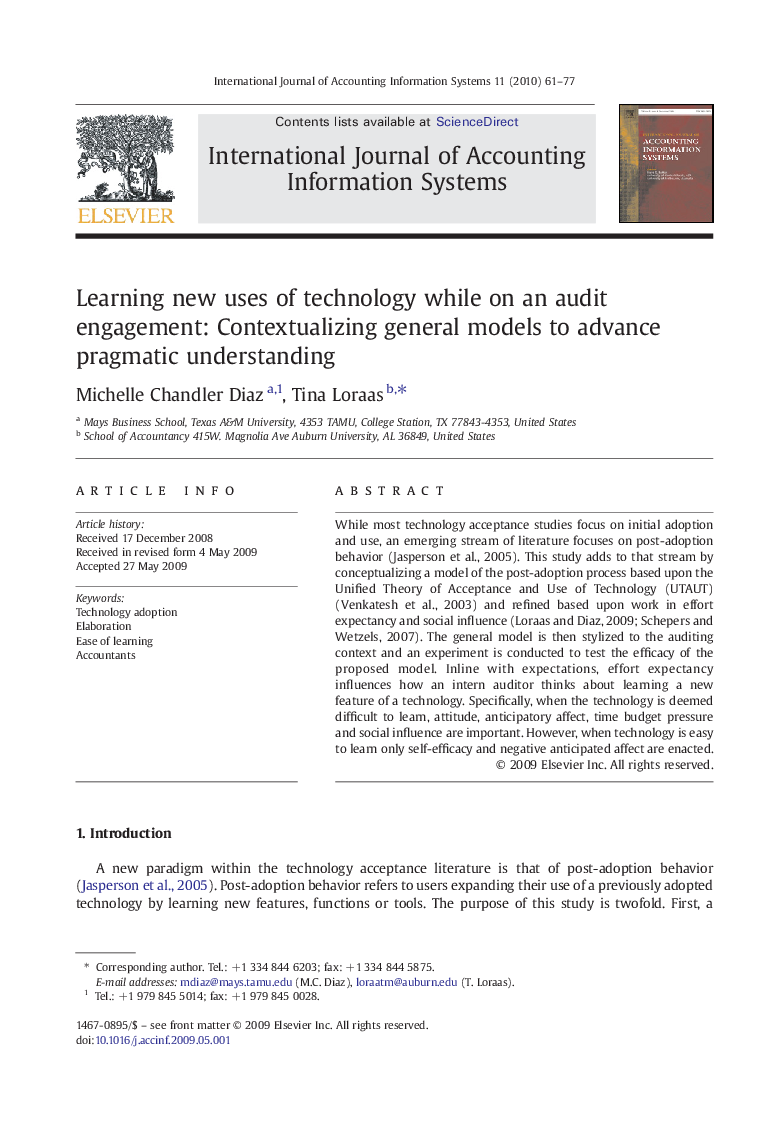| Article ID | Journal | Published Year | Pages | File Type |
|---|---|---|---|---|
| 1005532 | International Journal of Accounting Information Systems | 2010 | 17 Pages |
While most technology acceptance studies focus on initial adoption and use, an emerging stream of literature focuses on post-adoption behavior (Jasperson et al., 2005). This study adds to that stream by conceptualizing a model of the post-adoption process based upon the Unified Theory of Acceptance and Use of Technology (UTAUT) (Venkatesh et al., 2003) and refined based upon work in effort expectancy and social influence (Loraas and Diaz, 2009; Schepers and Wetzels, 2007). The general model is then stylized to the auditing context and an experiment is conducted to test the efficacy of the proposed model. Inline with expectations, effort expectancy influences how an intern auditor thinks about learning a new feature of a technology. Specifically, when the technology is deemed difficult to learn, attitude, anticipatory affect, time budget pressure and social influence are important. However, when technology is easy to learn only self-efficacy and negative anticipated affect are enacted.
